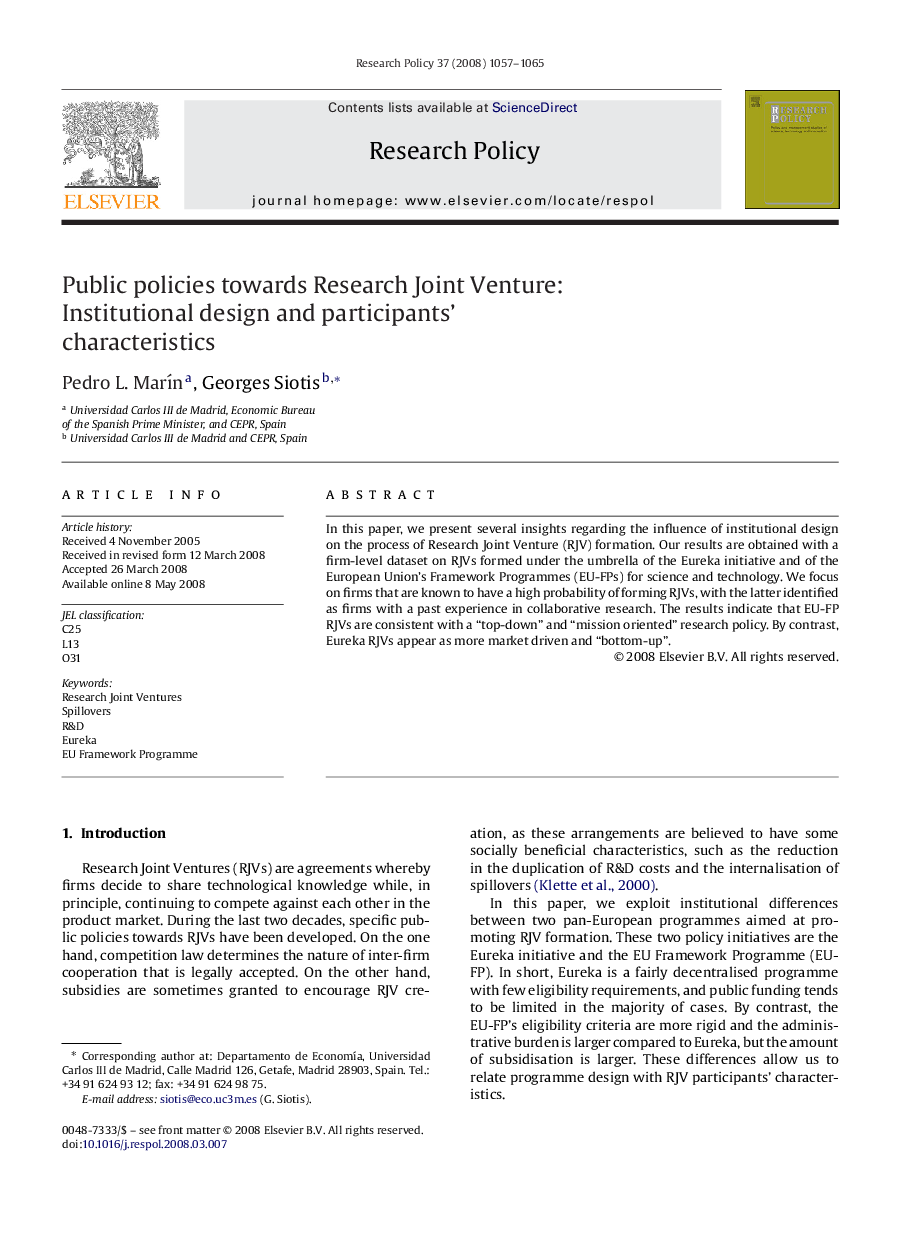| Article ID | Journal | Published Year | Pages | File Type |
|---|---|---|---|---|
| 984258 | Research Policy | 2008 | 9 Pages |
Abstract
In this paper, we present several insights regarding the influence of institutional design on the process of Research Joint Venture (RJV) formation. Our results are obtained with a firm-level dataset on RJVs formed under the umbrella of the Eureka initiative and of the European Union's Framework Programmes (EU-FPs) for science and technology. We focus on firms that are known to have a high probability of forming RJVs, with the latter identified as firms with a past experience in collaborative research. The results indicate that EU-FP RJVs are consistent with a “top-down” and “mission oriented” research policy. By contrast, Eureka RJVs appear as more market driven and “bottom-up”.
Related Topics
Social Sciences and Humanities
Business, Management and Accounting
Business and International Management
Authors
Pedro L. MarÃn, Georges Siotis,
